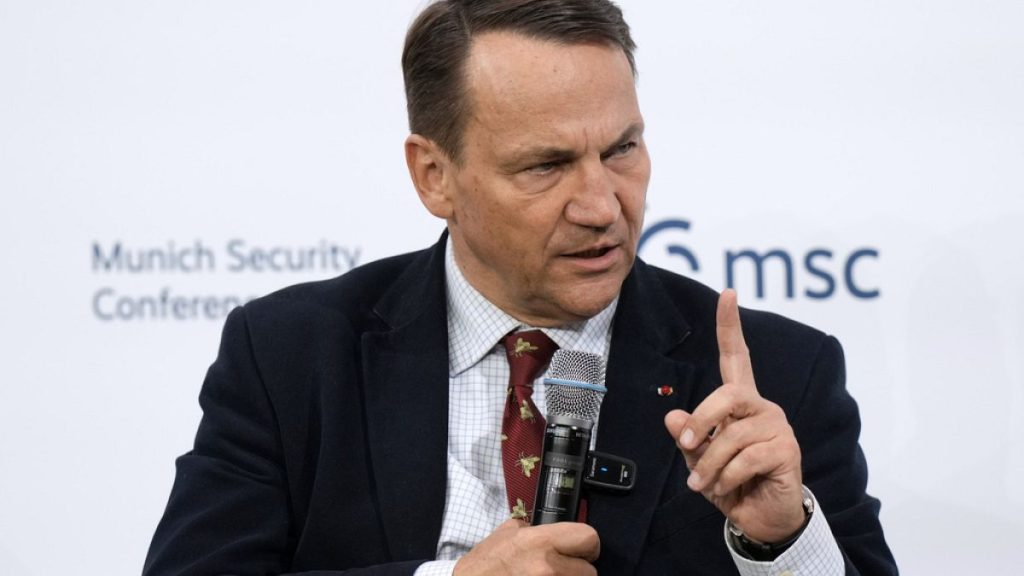In a recent joint statement, members of the European Parliament (MEPs) underscored the necessity of involving Ukraine’s government and its populace in any peace negotiations concerning the ongoing conflict in the region. This declaration emerged in response to a meeting held between U.S. and Russian officials—held in Saudi Arabia and notably excluding Ukrainian representatives. The MEPs emphasized that peace must be established through Ukraine’s active participation, stating clearly that any settlement that marginalizes Ukraine’s role will not be seen as just or sustainable.
| Article Subheadings |
|---|
| 1) Importance of Ukrainian Involvement in Peace Negotiations |
| 2) Context of the Recent US-Russia Meeting |
| 3) Reactions from European Officials |
| 4) Sanctions Against Russia |
| 5) The Future of Foreign Troops in Ukraine |
Importance of Ukrainian Involvement in Peace Negotiations
The foundation of a lasting peace in Ukraine hinges on the full participation of the Ukrainian government and the robust support of its citizens. As articulated by the European Parliament, any peace negotiation process that sidelines Ukraine’s elected officials is fundamentally flawed. This approach stems from a concern that any agreement lacking proper Ukrainian representation would undermine the country’s sovereignty and aspirations. MEPs conveyed this sentiment strongly during their discussions, underscoring that robust democratic governance must be at the heart of peace processes.
Context of the Recent US-Russia Meeting
The recent meeting between U.S. and Russian officials held in Saudi Arabia raised significant concerns, particularly due to Ukraine’s exclusion from the dialogue. This meeting has sparked criticism among European lawmakers who believe that any forum discussing Ukraine’s future without its leaders is improvident. The context of the meeting is further complicated by ongoing tensions in the region, making it essential for any diplomatic efforts to be inclusive and representative of all parties involved, especially Ukraine, which stands at the frontline of this conflict.
Reactions from European Officials
During a special European Parliament Committee on Foreign Affairs meeting, Polish Foreign Minister Radoslaw Sikorski emphasized the importance of including Ukrainian perspectives in any discussions regarding peace. In a press briefing with officials like David McAllister, the AFET Chairman, there was a unified message that validated the need for Ukrainian input in peace negotiations. The officials reiterated that “No peace in Ukraine can be negotiated without the full participation of the Ukrainian government and the backing by its people,” highlighting a collective European stance against any settlement that overlooks Ukraine’s voice in the process.
Sanctions Against Russia
Amidst these developments, Radoslaw Sikorski also discussed the impending sanctions aimed at Russia, which have been provisionally agreed upon and are slated for endorsement by the European Council shortly. The sanctions aim to apply further economic pressure on Russia in light of its ongoing military actions in Ukraine. This initiative reflects the broader resolve of European leaders to support Ukraine not just through words but through tangible economic measures that could hinder Russia’s operational capabilities.
The Future of Foreign Troops in Ukraine
Questions surrounding the presence of foreign troops in Ukraine were also raised during the discussions. Radoslaw Sikorski notably stated that the decision about foreign troop presence should rest squarely with Ukraine and not with Russia. This assertion reinforces Ukraine’s agency in determining its own security, a principle that is vital to asserting its sovereignty and territorial integrity. The implications of such a decision are multifaceted, involving questions about international support for Ukraine and the nature of military alliances moving forward.
| No. | Key Points |
|---|---|
| 1 | MEPs state that peace negotiations must include Ukraine for legitimacy. |
| 2 | The recent US-Russian meeting in Saudi Arabia excluded Ukraine, provoking criticism. |
| 3 | European officials demand Ukrainian participation in any peace talks. |
| 4 | New sanctions against Russia are under consideration by the European Council. |
| 5 | Foreign troop presence in Ukraine is a decision solely for Ukraine to make. |
Summary
The overarching message from the European Parliament and associated officials is clear: any negotiation regarding peace in Ukraine must be inclusive of the Ukrainian government and its citizens. With ongoing military efforts and international political maneuvering, it is crucial for Ukrainian sovereignty to be respected, emphasizing the nation’s ability to decide its future amidst external pressures and influences. The commitment of European leaders to support Ukraine through sanctions and policy is essential for fostering a resolution that upholds Ukraine’s legitimate interests.
Frequently Asked Questions
Question: Why is Ukrainian involvement deemed essential in peace negotiations?
Ukrainian involvement is viewed as essential to ensure that any agreements are representative of its national interests and democratic processes. Without its participation, peace efforts may lack legitimacy and fail to address the complex dynamics of the conflict.
Question: What was the significance of the US-Russia meeting in Saudi Arabia?
The meeting was significant because it excluded Ukrainian representation, raising concerns among European leaders about the legitimacy and viability of any discussions that do not include Ukraine’s perspectives and needs.
Question: What actions are being taken against Russia regarding the conflict in Ukraine?
Europe is considering a new package of sanctions against Russia, intended to increase economic pressure on the nation in response to its ongoing military actions in Ukraine, thereby supporting Ukrainian resistance and sovereignty.


